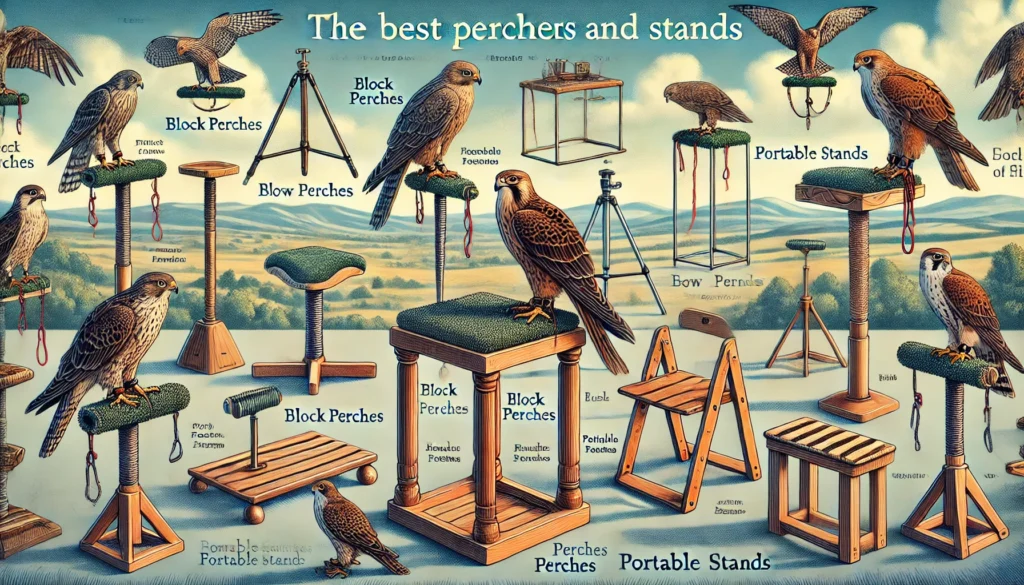Key Nutritional Insights for Falcon Health
- Falcons need a balanced diet to stay healthy and strong.
- Nutritional deficiencies can lead to serious health problems in falcons.
- Essential nutrients for falcons include proteins, vitamins, and minerals.
- Protein is crucial for muscle development and overall growth.
- Vitamins like A, D, E, and B-complex are vital for falcons’ immune system and overall wellbeing.
- Minerals such as calcium and phosphorus are important for bone health.
- Symptoms of deficiencies can include weak muscles, poor feather quality, and lethargy.
- Proper feeding practices can prevent nutritional deficiencies.
- Consult a veterinarian to ensure your falcon’s diet meets all nutritional needs.
Understanding Nutritional Deficiencies in Falcons: Lessons from a Balanced Irish Breakfast
Imagine starting your day with a hearty Irish breakfast: sizzling sausages, crispy bacon, freshly baked soda bread, and maybe a splash of tea’every bite fuels you up for a perfect day. Just like us, falcons need a well-balanced diet to stay healthy and strong. When they don’t get the right nutrients, it’s like beginning the day with only half a breakfast’something crucial is missing!
Here at Learn Falconry, we know how important it is to ensure your majestic birds are getting the nutrition they need. Falcons, just like any athlete, require a meticulously balanced diet to maintain peak performance and overall well-being. In our upcoming article, we dive deep into the nitty-gritty details of nutritional deficiencies in falcons. You’ll discover why certain vitamins and minerals are so essential, and what happens when these elements are lacking.
But why should you keep reading? Think of our article as your go-to guide, just like a trusted recipe handed down through generations, ensuring your falcon thrives on a perfect diet. Whether you’re an experienced falconer or a newcomer to this incredible journey, gaining knowledge about these deficiencies can make a world of difference. With insights and tips from Learn Falconry, you’re giving your feathered friend the best possible chance to soar high and stay healthy.
So, grab a cup of tea and settle in as we explore the fascinating and vital world of falcon nutrition!
Understanding Nutritional Deficiencies in Falcons
Falcons are incredible birds of prey known for their speed and hunting abilities. To keep these majestic creatures healthy and strong, it’s important to provide them with a balanced diet. However, sometimes falcon guardians can face falcon nutrition issues that might lead to nutritional deficiencies. In this article, we will explore how to identify deficiencies in falcons and methods for correcting falcon diet to ensure their well-being.
Falcon Nutrition Issues
One of the biggest challenges in raising falcons is making sure they get the right nutrients. Falcons have specific dietary needs that, if not met, can lead to various health problems. Common falcon nutrition issues include a lack of essential vitamins and minerals, improper balance of proteins and fats, and insufficient hydration. For more details on basic falcon nutrition, refer to this page.
Identifying Deficiencies
Recognizing nutrition-related problems early can make a big difference in the health and performance of your falcon. Signs of nutritional deficiencies in falcons may include poor feather condition, lethargy, decreased appetite, and susceptibility to illnesses. Regular health check-ups and weight management can help in identifying deficiencies. A thorough guide on signs of a healthy falcon can be accessed here.
Some common deficiencies and their indicators include:
- Vitamin A Deficiency: Can lead to poor vision, dry skin, and respiratory issues.
- Calcium Deficiency: Might cause weak bones and beak deformities.
- Protein Deficiency: Results in muscle wasting and poor feather growth.
For more information on common health issues in falcons, visit this link.
Correcting Falcon Diet
Once you’ve identified the deficiencies, the next step is to correct your falcon’s diet. Ensuring that your falcon has a balanced diet is crucial for its health. Here are some actionable tips:
- Incorporate Variety: Include various types of prey like quail, mice, and day-old chicks to provide a range of nutrients.
- Supplements: Use nutritional supplements if necessary. A detailed discussion on supplements is available here.
- Hydration: Ensure that your falcon is adequately hydrated, especially during hotter months. Read more about hydration for falcons here.
Planning a balanced diet tailored to the specific needs of your falcon can go a long way in preventing and correcting nutritional deficiencies. Visit this page for detailed information on creating a balanced diet.
Additional Resources
For those interested in more detailed information on falcon health and nutrition, here are some useful links:
Understanding and addressing falcon nutrition issues is key to ensuring these remarkable birds can thrive and perform at their best. By carefully monitoring your falcon’s health and diet, you can identify any deficiencies early and make the necessary adjustments to keep your falcon in top condition.
Understanding Nutritional Deficiencies in Falcons
Importance of Proper Nutrition for Falcons
Falcons, like other birds of prey, need a balanced diet to maintain their health and hunting abilities. Nutritional deficiencies can lead to various health problems, including weakened immune systems, poor feather quality, and even metabolic diseases. To ensure our feathered friends stay healthy and active, it’s crucial to understand the specific nutritional needs of falcons and recognize the signs of deficiencies.
Common Nutritional Deficiencies in Falcons
1. Vitamin A Deficiency:
Vitamin A is essential for maintaining healthy eyes and skin in falcons. A lack of this vitamin can result in issues such as:
- Poor vision
- Skin lesions
- Respiratory infections
2. Calcium Deficiency:
Calcium is vital for strong bones and eggshell formation in female falcons. Deficiency in calcium can lead to:
- Weak bones or fractures
- Poor eggshell quality
- Muscle tremors or seizures
3. Vitamin E Deficiency:
Vitamin E acts as an antioxidant and helps in maintaining cellular health. Falcons with a deficiency in Vitamin E may experience:
- Muscle weakness
- Poor reproductive performance
- Neurological issues
Impact of Diet on Falcon Health
Recent studies have highlighted the impact of diet on the overall health of falcons. For instance:
Pandemic Diet Changes:
- During the lockdowns in 2020, peregrine falcons in London showed changes in their diet.
- Feral pigeons: Decreased by 15%
- Starlings: Increased by 7%
- Ring-necked parakeets: Increased by 3%
This shift in diet could affect the nutritional intake and health of the falcons.
Falcon Gut Microbiota:
- Research shows that the gut microbiota of falcons is shaped significantly by their diet. The presence of Salmonella was notably enriched, indicating the importance of a well-balanced diet in maintaining a healthy gut microbiome.
Nutritional Table for Falcons
To provide a better understanding of what a balanced diet for a falcon might look like, here’s a simple table:
| Nutrient | Importance | Source Food |
|---|---|---|
| Vitamin A | Vision and skin health | Liver, fish oil |
| Calcium | Bone strength | Bones, eggshells |
| Vitamin E | Antioxidant | Fresh meat, fish, eggs |
| Protein | Muscle development | Whole prey (rodents, birds) |
| Minerals | General health | Bones, organs (heart, liver) |
Observing Natural Diet Changes
Studying urban-based falcons provides insights into how human activity impacts the diet and ecology of these birds. Falcons often prey on species supported by human activities, such as feral pigeons which thrive on food waste. This behavior indicates the complex relationship between falcons’ diets and human influence, emphasizing the need for carefully managed feeding programs to prevent nutritional deficiencies.
By understanding nutritional deficiencies and addressing them through well-balanced diets, we can ensure that falcons remain healthy, active, and capable of thriving in both wild and urban environments. For more information or assistance with creating a suitable diet plan for your falcon, please contact Learn Falconry. We’re here to help you give your feathered friends the best care possible!
Ensuring Optimal Health for Falcons Through Proper Nutrition
Caring for falcons involves more than just providing food; it’s about ensuring they receive the right nutrients to thrive. As we’ve seen, nutritional deficiencies can have serious impacts on these majestic birds. Key points to remember include:
- Understanding Deficiencies: Recognizing and addressing deficiencies is vital. Regular health check-ups and monitoring their diet closely can help prevent serious health issues.
- Adapting Falcon Diets: Falcons, especially in urban areas, may adapt their diet based on available prey. It’s important to understand these changes and how they affect their nutrition.
- Gut Health: The gut microbiota of falcons is heavily influenced by their diet. A balanced diet can contribute to a healthier microbiome, reducing the risk of infections like Salmonella.
By paying attention to these aspects, falcon caretakers can help ensure their birds lead healthy, vibrant lives. Proper nutrition isn’t just about feeding them’it’s about understanding their unique needs and adapting to ensure they receive all the essential nutrients.



